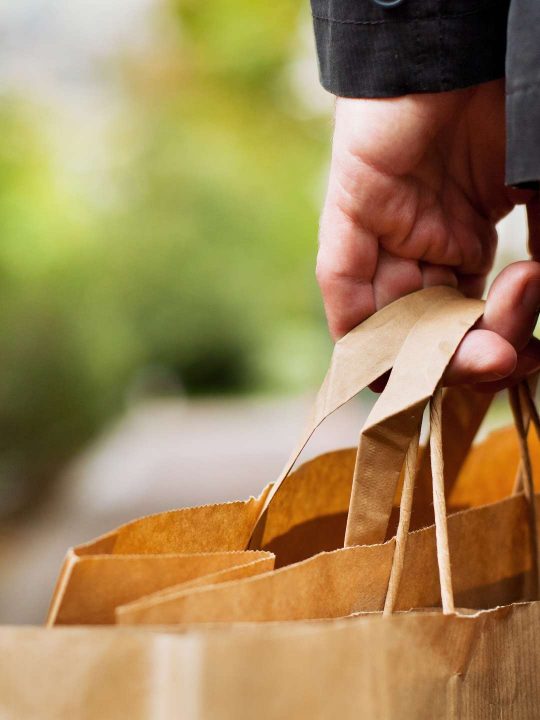The house is burning – but convenience is still king

Plastic is headline news. The kids are angry. Things are (quite literally) heating up on the sustainability front. But most shoppers don’t care quite enough about the planet to make things awkward for themselves. Whilst metal straws, bamboo brushes, ‘coconut bowls’, reusable travel coffee mugs, and washable cotton pads are great badges of commitment to the cause, they can feel like middle-class ‘eco-card-carrying’ rather than the mass step change we really need.
It’s no use just relying on consumers to demand this stuff. To achieve significant, wholesale change, retailers and manufacturers need to work together to ingrain sustainability into our default everyday behaviour. Not just hero product headlines and concept stores – but dull, everyday reality sans plastic. It needs to be a no-brainer to buy responsibly: an easy default. Then, once enough shoppers are doing it, we’ll all feel like we should.
Three aspects need to change for this to happen: price, convenience and labelling.
Sustainability can’t be a luxury. If making a sustainable choice is going to cost more, we’re relying on shoppers’ consciences being more powerful than their instinctive desire to save money. We’re making eco-friendly buying the preserve of those who can afford to do it. It’s a big ask to invest in the planet when you’re struggling to put food on the table for your kids. And having spent years educating shoppers to demand more for less, mass-market retailers will find it a challenge to command a premium for responsible action behind the scenes. So, if this is going to really take off, the equation has to work out as cost-neutral for shoppers.
Sustainability needs to be easy. When offering consumers a choice it’s important to make it an easy one. In the same way that Sainsbury’s removed plastic for its loose fruit, vegetables and bakery back in June, Lush has launched its first ‘naked shop’. By removing the choice of using packaging, sustainability becomes the default. We are also seeing this through innovative business models, such as Grove Collaborative, a subscription-based service delivering affordable and eco-friendly cleaning products on a monthly basis. Not having to think too much about this stuff makes it not just the right choice, but the natural one.
The message needs to be simple. It’s staggering how effective social proof is, which is why simple, persuasive labelling and full disclosure is crucial in encouraging consumers to make the switch. Opening communication channels to disclose and educate consumers of the processes involved in making products and packaging encourages more ethical choices. The more people jump on this, the more it will reflect as the ‘correct’ behaviour and thus, gather appropriate bandwagon momentum.
It is clear that retailers have several avenues they can take to shape behaviour, but affecting a real gear-change in sustainability relies on them taking the initiative and the strain. As long as they transition their business model into a sustainable one in a way that doesn’t make it seem like hard work for consumers, they will be on the right path.

 Back to articles
Back to articles

